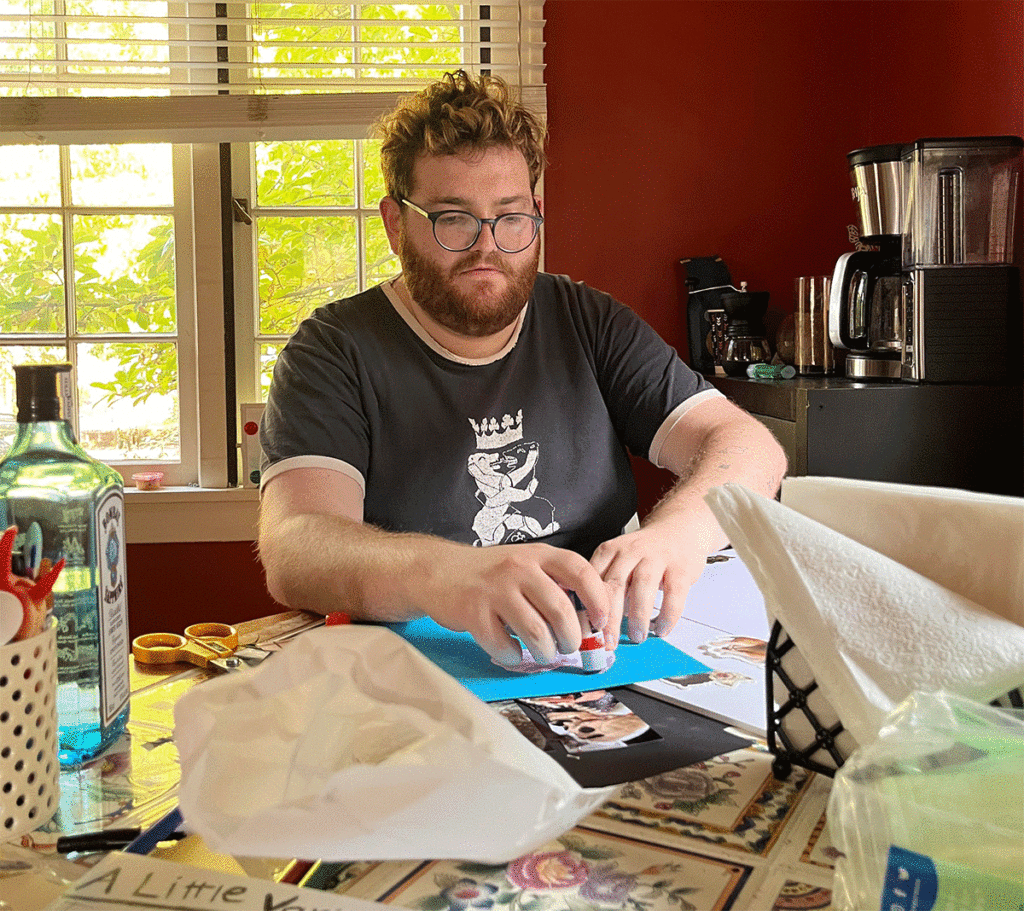Jordan Marzka, High School Activities Coordinator, played his first video game on a Super Nintendo at a friend’s house. The game Marzka played was Donkey Kong Country, and he adored it. Marzka’s parents refused to buy the game, though he and his older brother begged them to, but through a stroke of luck, Marzka’s babysitter at the time gifted him her old Nintendo 64.
“I think [that was] one of my earliest memories of playing a video game,” says Marzka, recalling watching his brother try to beat Donkey Kong 64.
Prior to Donkey Kong, Marzka had never played video games, except the occasional visit to an arcade, but video games enthralled him. Marzka took on Donkey Kong 64, a particularly difficult game known for its sheer number of tasks, as a challenge to complete.
“You have to build skills at playing video games so you can see the rest of [the] narrative,” says Marzka, who graduated with a BFA in creative writing from Portland State University. “I think I was always interested in narrative and world building.”
Marzka lived the first six years of his life with an unusual situation at home. His parents had been divorced all his life, but chose to live in the same house with their respective partners in the hopes of giving Marzka and his brother a stable home in their formative years. When Marzka was six, his parents moved into separate houses, and he visited back and forth between them. Two years later, Marzka’s parents severed contact completely, and his dad took his brother, leaving Marzka alone with his mother.
Marzka had a turbulent childhood following the split. His mom suffered from addiction, and the two spent a year homeless. While in ninth grade, Marzka lived in an RV with his mom.
“It didn’t have electricity or water, but it did provide us some shelter that kept us from living directly on the street,” says Marzka. “My ‘room’ was the little area above the driver’s seat, and I mostly remember reading a lot via the sun that would come in through the windows.”
While they were unhoused, Marzka was doing online school. He went to the public library every day to work on his assignments, and would interact with other kids that came there after school. The whole time, he kept his housing situation a secret.
“It’s a weird phase in my life, because despite [it] being insanely stressful, I remember a lot of good times,” says Marzka. “I used to play Smash Bros. at the library with these kids that went to a high school nearby, and it was the first time in years that I actually had a group of friends that I saw regularly.”
Marzka also credits this time in his life for sparking his love of literature. However, he also faced the trials of poverty: struggling to afford food, being unable to shower and having to depend on public restrooms.
“But every two weeks, after my mom got her paycheck, we would spend a third of it to get a motel for a single night,” says Marzka. “It was amazing [to be] able to take a shower and sleep in a real bed. On [those] nights, I would set my laptop up and Skype call my friends from my old Minecraft server and we would play games together until three in the morning. Then we’d pack up and go back to the RV.”
Through the trying times Marzka faced, video games offered him a source of comfort, and he found solace in the familiar geography and structure of games like Minecraft.
“[Video games were something] only for me,” says Marzka, “and I could find secrets in them, and that was really really satisfying for me.”
Not only did gaming provide Marzka comfort and security, it also helped him connect with peers his age at a time when his living situation prevented him from forming conventional friendships. Whether it was playing Super Smash Bros. at the library or Minecraft on Skype at 3 a.m., video games gave Marzka an opportunity to become part of a community that was always there for him, wherever he went.
“[Gaming] is community, and it’s culture,” Marzka says. “It’s engaging with these shared experiences and shared backgrounds.”
His online presence helped him connect with people who could understand what he was going through. Marzka’s gaming community would later serve a very important purpose: providing a safe space for him to come out.
“I had a community of people I was able to talk about being gay with, because it was safer to come out in a virtual space than it was in a physical one,” says Marzka.
Not only did the community support his coming out, but the games themselves helped unlock his queer identity, as he wrote in an essay published in the Oregon Humanities magazine. In the piece, Marzka described how he broke into tears after his character in Stardew Valley, a man, married the doctor, another man.
Marzka’s mom eventually received some help from a friend, and they were able to move into an extended stay hotel in Las Vegas. Marzka enrolled in the local public high school and slowly tried to get back to a sense of normalcy.
Marzka still talks regularly with his mom and brother. He doesn’t speak with his dad.
“There’s a lot of baggage which I will spare you,” said Marzka, “but as an adult, you come to realize that there [are] some people who make your life better and some who don’t. I prioritize the former.”
As an adult, Marzka still likes to play video games in his free time. In addition to exploring Skyrim and playing No Man’s Sky and Fallout: New Vegas with his boyfriend, Marzka also plays games with his neighbor and close friend, Raz Mostaghimi, Middle School Activities Coordinator at NWA.
Mostaghimi and Jordan became close during the lockdown, largely by playing video games together. Among their favorites are Overcooked and The Sims.
“[One time] we started a game of The Sims on my computer, [and] we made ourselves as sims,” said Mostaghimi. “The whole story was that we started out as kids, and we were younger versions of ourselves, and we were all adopted siblings raised by [a] sweet lesbian couple.”
For Marzka, gaming provided a window to a childhood free from the troubles he experienced as a kid: a light in the darkest times, a place to seek reassurance when everything around him was questioned and a sanctitude where he discovered joy, identity and love.
Reporting by Nakul Bharani, Tinsley Collins and Shambhava Srikanth





Leave a Reply